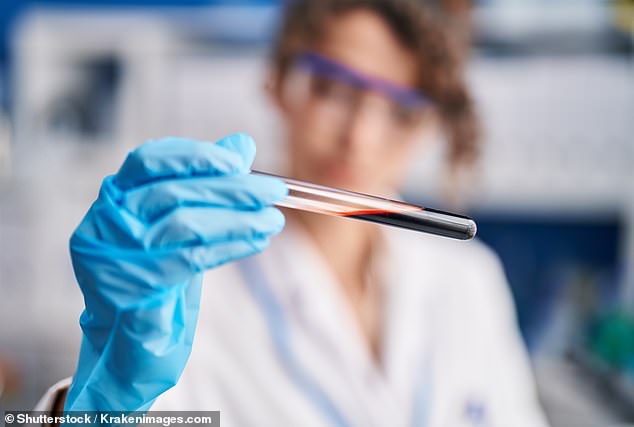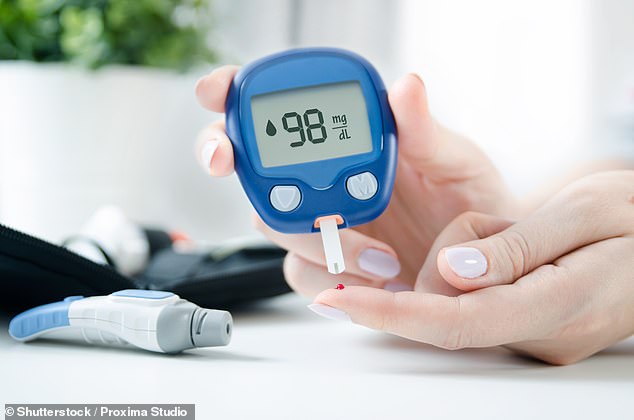Thousands of patients were misdiagnosed with diabetes and wrongly put on medication due to NHS blood test mistakes.
At least 55,000 people will need further tests after errors were found in machines used to diagnose the condition.
Up to 10 per cent of NHS laboratories in England are affected by the issues, NHS England said.
The problems mean some patients have been wrongly diagnosed with type 2 diabetes and then unnecessarily prescribed a medication with potentially unpleasant side-effects.
NHS England confirmed that 16 hospital trusts use the machines, made by Trinity Biotech, which have produced inaccurate test results.
It said type 2 diabetes diagnoses rose by 10,000 in 2024, 4 per cent more than expected.
Dr Clare Hambling, NHS diabetes national clinical director, said: ‘Being potentially misdiagnosed with any long-term condition, such as type 2 diabetes, is understandably worrying, however the clinical risk of harm to patients following this issue is low.

Thousands of patients were misdiagnosed with diabetes and wrongly put on medication due to NHS blood test mistakes (stock image)

At least 55,000 people will need further tests after errors were found in machines used to diagnose the condition (stock image)

Up to 10 per cent of NHS laboratories in England are affected by the issues, NHS England said (stock image)
‘Less than 10 per cent of NHS laboratories were affected and all have either replaced the machines or addressed calibration issues following Medicines and Healthcare products Regulatory Agency advice in July – and anyone requiring a repeat test will be contacted by their GP or local hospital.’
The BBC has investigated the issue after first reporting in September last year that 11,000 patients faced re-testing after a machine at Luton and Dunstable Hospital issued incorrect results.
Now it turns out the problem is more widespread. The procedure, known as the HbA1c test, measures average blood sugar levels over three months.
This measure is used to diagnose diabetes and monitor the condition. According to the MHRA, issues with tests via the machines were first reported in April 2024.
One of those affected was Vicky Davies, 36, from Hull, who was first told she had type 2 diabetes in October 2024.
She was advised to try and lose weight first, and was later prescribed four tablets of metformin a day – the maximum dose.
In April 2025 she had further tests as part of her three-month review and was told that she wasn’t diabetic, which she assumed was because she had been on metformin.
But later that month, she was told her blood results might not have been accurate and advised to come off the medication immediately.
During the four months she took metformin she suffered with stomach issues and dizziness.
She told the BBC: ‘It’s had a huge effect on my life. Since the diagnosis I have suffered with stress and had to take time off work to attend appointments.
‘I’ve complained to my GP, but I didn’t really get an apology. I’m so angry.’ Trinity Biotech said: ‘The company has worked closely with the MHRA to resolve the issues experienced by some UK labs.’
The statement also said the company had ‘issued three Field Safety Notices in 2024 to all UK users, informing them of a potential positive bias issue’.
Share or comment on this article:
Patients wrongly diagnosed with diabetes and put on unnecessary medication after 55,000 NHS blood test blunders
